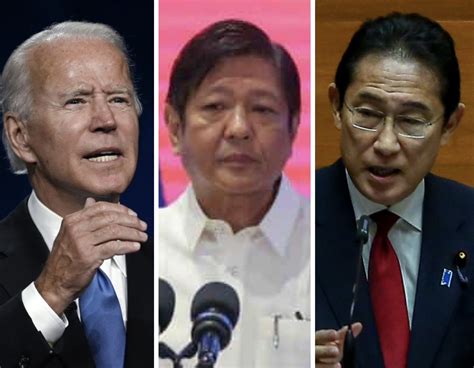By Luke Allen
Military, Political Analyst
lukeallenmanila@journalist.com
In a significant display of unity and cooperation, the leaders of the United States, Japan, and the Philippines convened for a trilateral meeting focused on key areas of cooperation including technology and clean energy, deepening maritime and security ties, and opening up the Luzon corridor for investments. The first of it’s kind in Southeast Asian. The meeting, which took place in Washington D.C., underscored the shared commitment of the three nations to address the complex challenges of our time.
One of the central themes of the trilateral meeting was the promotion of technology and clean energy initiatives among the three nations. President Marcos of the Philippines emphasized the importance of leveraging technological advancements to drive sustainable development and economic growth. The leaders discussed collaborative efforts to enhance innovation, research, and development in key sectors such as renewable energy, artificial intelligence, and advanced manufacturing.
The agreement to cooperate on technology and clean energy reflects a shared vision for a more sustainable and technologically advanced future, benefiting not only the three nations involved but also contributing to global efforts to combat climate change and promote environmental conservation.
Another focal point of the trilateral meeting was the deepening of maritime and security ties among the US, Japan, and the Philippines. President Biden underscored the strategic importance of maintaining a strong presence in the Indo-Pacific region, particularly in the face of growing challenges and provocations from China.
The leaders reaffirmed their commitment to upholding freedom of navigation, ensuring maritime security, and promoting stability in the region. They discussed joint naval exercises, information sharing mechanisms, and capacity-building initiatives to enhance their collective security posture and response capabilities.
A key outcome of the trilateral meeting was the decision to open up the Luzon corridor for increased investments and economic cooperation. The Luzon corridor, a vital economic hub in the Philippines, offers strategic opportunities for infrastructure development, trade facilitation, and investment projects that will benefit the region and boost economic growth.
President Marcos highlighted the potential for enhanced connectivity and trade linkages through the Luzon corridor, emphasizing the role of foreign investments in driving economic development and creating job opportunities for the Filipino people.
President Biden reiterated the unwavering support of the United States for the defense and security of the Philippines and Japan, emphasizing that the US commitment is “ironclad” in the face of growing provocations from China. He underscored the importance of upholding the mutual defense treaty between the US and the Philippines, which stipulates that any attacks on Philippine aircraft, vessels, or armed forces would trigger a collective defense response.
President Biden’s statement reaffirmed the strong bond of friendship and alliance among the three nations, sending a clear message of unity and deterrence against any potential threats to regional security and stability.
In his closing remarks, President Marcos emphasized that the trilateral meeting marked just the beginning of a concerted effort to tackle the complex challenges of our time. He expressed optimism about the future of the partnership between the US, Japan, and the Philippines, highlighting the shared values and common goals that bind the three nations together.
As the trilateral meeting concluded, the leaders departed with a renewed sense of purpose and solidarity, underscoring their commitment to working together to address the multifaceted challenges facing the Indo-Pacific region and beyond. The meeting served as a testament to the enduring peace, prosperity and freedom in the Indo-Pacific.
